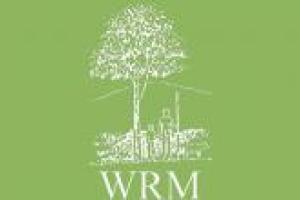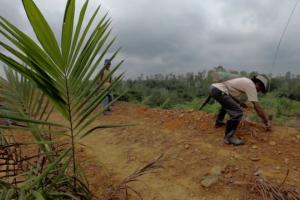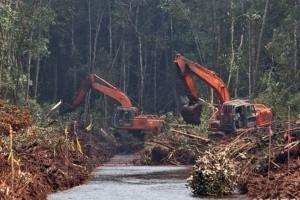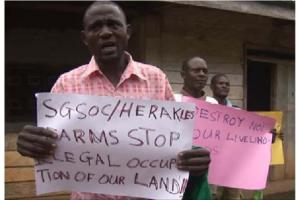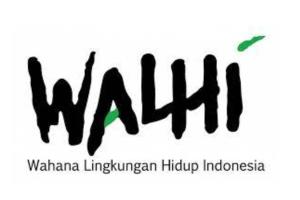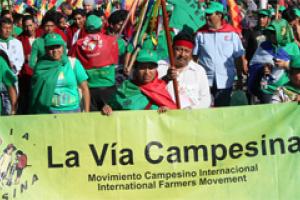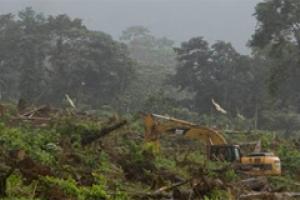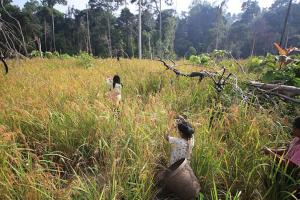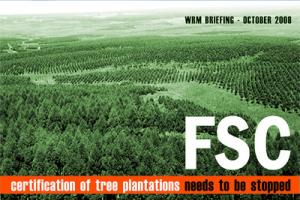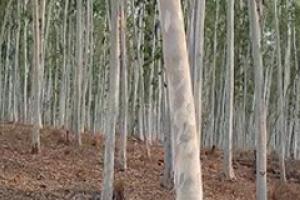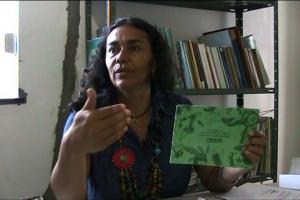“World Summit on Sustainable Forest (-destruction)”, a satirical blog on the summit that will be held on March 5th-6th 2013 in Stockholm (Sweden). You are invited to attend or follow this World Forgery Summit on sustainable forest destruction. Some of the key questions in the agenda:
*Can we find a way to rebrand monoculture plantations as being sustainable?
*Is there a way to make the bankrupt carbon trading system look like a part of the solution to the climate crisis?
Large-Scale Tree Plantations
Industrial tree plantations are large-scale, intensively managed, even-aged monocultures, involving vast areas of fertile land under the control of plantation companies. Management of plantations involves the use of huge amounts of water as well as agrochemicals—which harm humans, and plants and animals in the plantations and surrounding areas.
Other information
30 December 2012
“Manufacturing Consent” is a film that features evidence and first-hand testimony of the abuses of PT Borneo Surya Mining Jaya (PT Borneo) in Muara Tae. The company, a subsidiary of First Resources Ltd, bulldozed farmland and forests belonging to the indigenous community of Muara Tae, assisted by the intimidation of armed police brought in to protect the company, while trying to obtain RSPO certification under fake information.
Other information
14 December 2012
Several banks and other financial institutions around the world have been warned on last 6 November to avoid investments in pulp and paper mills associated with deforestation and human rights abuses in Indonesia.
Sixty environmental and social non-governmental organisations, including a dozen Indonesian civil society groups, have sent letters asking for assurances that the financial institutions will not invest in increased pulp milling capacity by Asia Pulp and Paper (APP) or other companies associated with the Sinar Mas Group until reforms have been achieved.
Bulletin articles
30 October 2012
Bulletin articles
30 October 2012
The state administrative High Court in Medan, has decided in favor of the organization WALHI, cancelling administrative decisions that led to the issuance of the license to the oil palm plantation PT Kalista Alam for an area of around 1,605 hectares in the Rawa Tripa peat swamp forest, Nagan Raya District, Aceh.
Other information
30 October 2012
São Tomé and Príncipe is one of the countries on the West African coast that stands out when it comes to biodiversity. For this reason, since the end of the 19th century these “beautiful equatorial islands” have attracted enormous interest from international researchers.Their forests have been classified as one of the two hundred most important areas in the world in terms of biodiversity. They are the habitat for around 25 species of endemic birds.
Bulletin articles
30 October 2012
The struggle in Geragai District
Up to 2011, a total of 18 companies had licenses over forest areas for a total of 663,809 ha distributed over 8 Regencies in Jambi Province, Sumatra, nearly 50% of which - 293,812 ha - is being controlled by one large corporation, PT. WiraKaryaSakti (PT. WKS), a subsidiary of Sinar Mas Group. The concession land of PT. WKS is divided in 5 Regencies, namely Tebo Regency, Batanghari Regency, Muaro Jambi Regency, TanjungJabung Barat Regency, and TanjungJabungTimur Regency.
25 October 2012
The trend of voluntary certification is a FAO-supported phenomenon that came up in the 1990s, presented by corporations and governments as a solution to deforestation; according to a set of principles and criteria, certification schemes aim to assure consumers that products are coming from areas with a “sustainable forest management”. In some schemes this also includes management of industrial tree monocultures, declaring these activities socially and ecologically benign.
Bulletin articles
23 October 2012
This past September 21, to mark the International Day Against Monoculture Tree Plantations, the Portuguese environmental organizations Liga para a Protecção da Natureza (League for the Protection of Nature) and Quercus launched a petition against a proposed new regime for tree planting and replanting presented by the government.
Other information
23 October 2012
“Sustainable on Paper”, a documentary film by journalists An-Katrien Lecluyse and Leopold Broers released in Belgium in 2011, is now available on the internet. The film broadly denounces the FSC certification of plantations owned by one of the biggest eucalyptus and pulp companies in Brazil, Veracel Celulosa, a joint venture of Brazilian-based Fibria and Swedish-Finnish transnational Stora Enso.
Bulletin articles
30 September 2012
This September we pay tribute once again to the men and women around the world who have taken up different struggles against monoculture tree plantations in defense of their territories, their forests and their way of life, as opposed to the greed of big corporations and investors who seek to exploit the same land for their own benefit.
